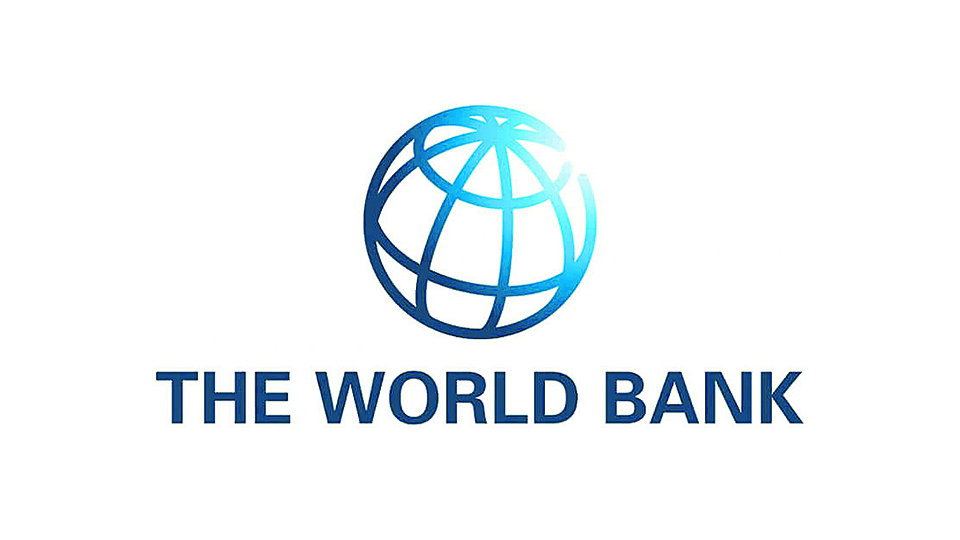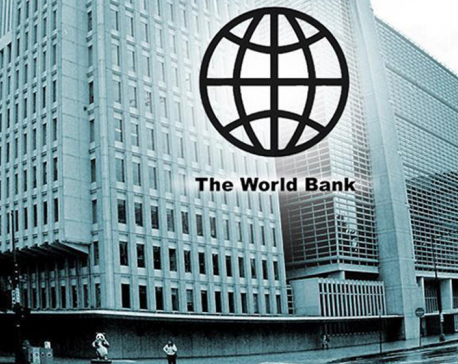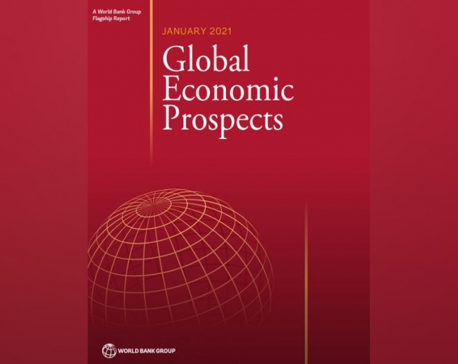
OR
Lagging behind in vaccination is main constraint for recovery of COVID-affected emerging economies: World Bank
Published On: June 9, 2021 07:15 PM NPT By: Republica | @RepublicaNepal

KATHMANDU, June 9: The World Bank (WB) has pointed out that the slow process of vaccination has hit the economic recovery of countries like Nepal that are being hit hard by the second wave of COVID-19.
Unveiling Global Economic Prospects on Tuesday, the multilateral lending institution has said the WB’s extension of debt relief program will provide additional fiscal space for Afghanistan, the Maldives, Nepal and Pakistan, in particular. These countries are also among the beneficiaries of the debt relief under the Debt Service Suspension Initiative that the WB has extended to December 2021.
Nepal has faced a setback with the second wave of COVID while struggling to recover the economy battered by the pandemic since last year. Recoveries in these countries face new headwinds from a recent rise in COVID-19 cases accompanied by rising restrictions to stamp out the new surge, reports the WB.
The multilateral organization has projected that the global economy will grow by 5.6% in 2021. Despite the recovery, global output will be about 2% below pre-pandemic projections by the end of this year. Growth in South Asia is expected to rebound to 6.8 percent in 2021, 3.6 percentage points higher than previously projected, reflecting a stronger-than-expected momentum from the end of last year.
However, the low income countries including Nepal that fall in the group of emerging market and developing economies (EMDEs) are anticipated to achieve a modest growth of only 4.4 percent. The per capita income in these economies is also expected to remain below pre-pandemic levels, and the losses are anticipated to worsen deprivations associated with health, education and living standards, according to the WB report.
The pandemic continues to have a particularly dampening effect on tourism-reliant economies and is further exacerbating domestic challenges in low-income countries. In all, the pace of recovery in two-thirds of EMDEs will be insufficient to recoup the per capita income losses caused by the pandemic by 2022, and poverty rates are expected to rise further. The long-term outlook has also deteriorated, owing to the pandemic’s lasting impact on the potential output.
The WB has said recovery in these economies is constrained by lagging vaccination as well as a partial withdrawal of macroeconomic policy support while the countries are affected by a severe resurgence of new COVID-19 cases.
You May Like This

Services-led growth key to Nepal’s green, resilient, and inclusive development: World Bank
KATHMANDU, Oct 7: The World Bank (WB) has projected that the Nepali economy will grow by 3.9 percent in the current... Read More...

World Bank projects Nepal’s growth rate to limit at 0.6 percent this year
KATHMANDU, Jan 6: The World Bank (WB) has projected that Nepal’s economy will grow by a meager 0.6 percent in... Read More...

World Bank approves $12 billion in financing to help developing countries buy, distribute coronavirus vaccines, tests, and treatments
UNITED STATES, Oct 14: The World Bank has approved $12 billion in financing to help developing countries buy and distribute... Read More...









Just In
- Forced Covid-19 cremations: is it too late for redemption?
- NRB to provide collateral-free loans to foreign employment seekers
- NEB to publish Grade 12 results next week
- Body handover begins; Relatives remain dissatisfied with insurance, compensation amount
- NC defers its plan to join Koshi govt
- NRB to review microfinance loan interest rate
- 134 dead in floods and landslides since onset of monsoon this year
- Mahakali Irrigation Project sees only 22 percent physical progress in 18 years









Leave A Comment